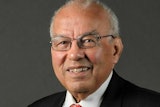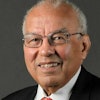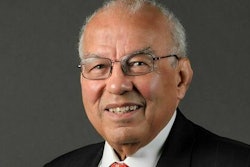Dr. Cornel West, in His Own Words
Before giving the keynote address at the conference “The State of the African American Professoriate,” held at Ramapo College in Mahwah, N.J., Dr. Cornel West spoke with reporters, primarily about the circumstances surrounding his much-publicized departure from Harvard University.
A lot of people may feel, given your recent experience at Harvard, “If it can happen to him, what hope do I have?” What lesson can aspiring academics take from your recent experience?
WEST: I’ve been in the academy almost 30 years, and it’s been challenging, a lot of ups and downs, a lot of fun. So as I see it, this particular incident should not serve as a moment that overshadows other more positive moments. Young people have to see that, wherever they are in American society, there are going to be some impediments. And so in that regard it’s like anywhere else in America — being a doctor, lawyer, even a journalist. The point is not to get discouraged and not to think that any negative experience has the last word.
Do you have any words of advice for African American intellectuals who may be facing pressure — as you recently did — to produce a particular type of scholarship?
WEST: I think people should just be themselves — and by that I mean take seriously the Shakespearean imperative “To thine own self be true.” And if in being true to oneself, you write popular books, that’s fine; if you write academic books, that’s fine, too. While the jargon of academia is labeled irrelevant in some circles, I don’t think that speaking in a certain specialized language is precisely irrelevant; it may just have less relevance for a larger public. There can be very salutary developments that come out of that jargon; there might be a need for it. But it has to be translated — at that point you need your translators. As I said in the lecture, I support the specialists, the technicians and the analysts. They have a very important role to play. The fact that William Julius Wilson’s work isn’t on the best-seller lists doesn’t mean that he hasn’t made a major contribution. I just think one has to be true to oneself. This attempt to shape everyone into one mold is something that I just resist.
As far as what you have to do to achieve tenure there, it’s a matter of jumping through the hoops of the system. But when you think of it, Ralph Waldo Emerson would never have received tenure in the philosophy department at Harvard University in the 19th century. And yet who were the tenured professors of his day? Nobody knows. DuBois could never receive a job at Harvard, Yale, Princeton — and yet 150 years from now when they talk about sociology and its relation to race or about Black Reconstruction, who will they be talking about? Dr. DuBois. Who were the tenured members of the Harvard sociology department in 1912? It’s hard to recall one.
Were you surprised that your dispute with Dr. Lawrence Summers became so public, so quickly? What do you think fueled the media frenzy?
WEST: I think from the very beginning when Brother Skip (Dr. Henry Louis Gates) talked about a dream team, the press ran with that. And Harvard is, in many ways, the national institution of higher education in the American empire, so it does solicit a certain kind of attention from journalists — many of whom are themselves part of Ivy League networks, so that they tend to cover those in that particular slice of the chattering classes that they’re a part of. But I have to admit that it took off in a way that surprised me. You had Chinese newspapers, journalists from Berlin, Paris. I said, “Oh, my God. There are some other issues that you can think of that deserve some serious attention. AIDS in the Black community, AIDS in Africa…” Ah, well. C’est la vie.
Are you disturbed that certain people are using your experience to question the role of Black studies in higher education more generally?
WEST: In certain circles, there are pundits and commentators who don’t understand the intellectual legitimacy of the study of the experience of people of African descent and what a challenge it poses in terms of our understanding of what it means to be human, what it means to be modern, what it means to be American. I don’t expect folk from “Crossfire” to get into this. I wish they would, but I don’t expect it. We’re going to always have those naysayers out there. But our point of reference should always be those persons who are willing to think hard and long about those existential questions that are painful and difficult rather than those who have an a priori approach to the Negro.
What are your feelings on leaving Harvard for Princeton?
WEST: I didn’t really want to leave. If Larry Summers were not the president of Harvard, I’d probably still be there. We were having a great time, involved in a grand project. But there’s both the pull of Princeton and the push of Harvard. And the push of Harvard was very much my dear brother, Larry Summers.
Basically, I’m leaving Harvard with a tear and arriving at Princeton with a smile. But I do want to say that Harvard is a great place; It’s a great tradition; and that tradition is much bigger than any faculty member, any president, any one person. The question is trying to keep the best of it alive. Thirty years from now we’ll all be dead and gone and Harvard will be marching on. The question will be whether the best of Harvard is still alive. That tradition has some ugly aspects to it as far as its White supremacist legacy, male supremacist legacy, but it’s made some strides. Princeton’s the same way. It has deeply White and male supremacist notions at the core of its identity. But leadership has made a difference. (Dr.) Harold Shapiro came in and made it a different place.
Now, Princeton’s got Toni Morrison. That in and of itself was sufficient reason. She was going to retire and she’s extended her stay five years. She’s a dear friend, colleague, mentor. And more generally, I do believe Princeton is a great center of humanistic dialogue right now. You’ve got Toni there, (Dr. Alexander) Nehamas who writes on Nietszche, (Dr.) Jeff Stout (who writes) on pragmatism, (Dr. Albert J.) Raboteau who’s a great expert on African American religion. I could go on and on and on. It’s a very exciting place to be.
Princeton doesn’t yet have a department of African American studies. What kind of leadership can you provide in moving the university in that direction?
WEST: I have to wait and listen to my colleagues and learn from my colleagues. They know Princeton better than I do. So as someone coming in from the outside, I wouldn’t want to say what I can or cannot do until I find out what the terrain is like and what kind of wise judgment I can hear from them. But I am excited about Princeton getting a department. As for how we go about it, I will follow the leaders on the ground at Princeton, because I don’t come in as a leader, you see, I come in as a listener.
Will anyone else from Harvard be joining you? As in, perhaps, Dr. Henry Louis Gates?
WEST: You never know. I think Brother Skip is leaning in that direction but he’s got to speak for himself. I’d love to have him with me (at Princeton); we have a good time together. But he is my brother and my friend wherever he is.
There has been a great deal of talk among educators that, in the coming decades, universities will have to change, will have to become more community and service oriented in order to educate the broadest slice of American society and to ensure our future competitiveness. But how is that possible when there are so many forces working against that — i.e., working to skim the cream off the top and to educate only that class?
WEST: The thing to remember is that, because market forces are the dominant forces on the globe, you can’t sidestep them; you’ve got to work through them. So the question becomes, “How do you use the market for non-market ends?” The non-market models that I have in mind are democratic models of education that talk about citizenship as opposed to the student just being a consumer or just being a professional. There are more demands and many more obligations incumbent on the student-citizen than on the student who is merely a consumer or a professional. It has to do with being a citizen in a democratic republic, and I think that the democratic model is cutting against the market model. There are fascinating tensions being played out.
But as I mentioned in the lecture, I do believe the life of the mind has intrinsic value and pleasure that’s not reducible simply to public service. It’s a desirable way of being in the world because it also has its own intrinsic pleasure. I simply like to link it with public service, social transformation, but it’s not solely that. I don’t listen to Beethoven’s Opus 131 or John Coltrane’s “A Love Supreme” to make revolution. There’s something about the quality of mind, heart and soul that have gone into those artworks that I revel in, in addition to trying to connect Beethoven or Coltrane to social change. Both are going on at the same time.
— By Kendra Hamilton
© Copyright 2005 by DiverseEducation.com















